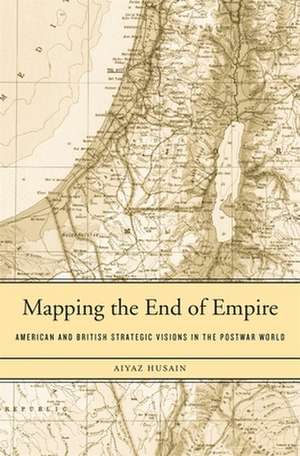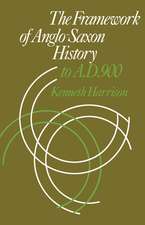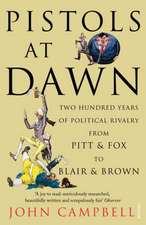Mapping the End of Empire – American and British Strategic Visions in the Postwar World
Autor Aiyaz Husainen Limba Engleză Hardback – 24 apr 2014
Aiyaz Husain shows that American and British postwar strategy drew on popular notions of geography as well as academic and military knowledge. Once codified in maps and memoranda, these perspectives became foundations of foreign policy. In South Asia, American officials envisioned an independent Pakistan blocking Soviet influence, an objective that outweighed other considerations in the contested Kashmir region. Shoring up Pakistan meshed perfectly with British hopes for a quiescent Indian subcontinent once partition became inevitable. But serious differences with Britain arose over America's support for the new state of Israel. Viewing the Mediterranean as a European lake of sorts, U.S. officials--even in parts of the State Department--linked Palestine with Europe, deeming it a perfectly logical destination for Jewish refugees. But British strategists feared that the installation of a Jewish state in Palestine could incite Muslim ire from one corner of the Islamic world to the other.
As Husain makes clear, these perspectives also influenced the Dumbarton Oaks Conference and blueprints for the UN Security Council and shaped French and Dutch colonial fortunes in the Levant and the East Indies.
Preț: 469.70 lei
Nou
Puncte Express: 705
Preț estimativ în valută:
89.89€ • 93.31$ • 74.95£
89.89€ • 93.31$ • 74.95£
Carte tipărită la comandă
Livrare economică 22 martie-05 aprilie
Preluare comenzi: 021 569.72.76
Specificații
ISBN-13: 9780674728882
ISBN-10: 0674728882
Pagini: 384
Ilustrații: Illustrations (black and white)
Dimensiuni: 168 x 243 x 31 mm
Greutate: 0.7 kg
Editura: Harvard University Press
ISBN-10: 0674728882
Pagini: 384
Ilustrații: Illustrations (black and white)
Dimensiuni: 168 x 243 x 31 mm
Greutate: 0.7 kg
Editura: Harvard University Press
Notă biografică
Descriere
By 1945 Washington and London envisioned a new era in which the U.S. shouldered global responsibilities while Britain focused its regional interests narrowly. Mapping the End of Empire reveals how Anglo-American perceptions of geography and perspectives on the Muslim world shaped postcolonial futures from the Middle East to South Asia.










